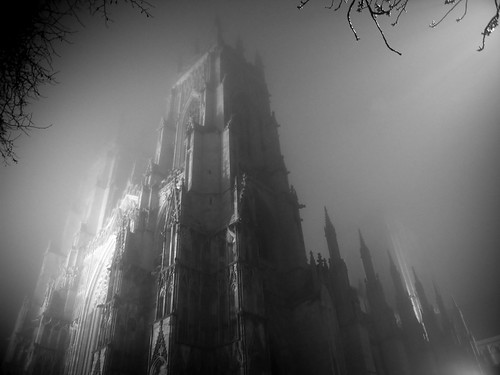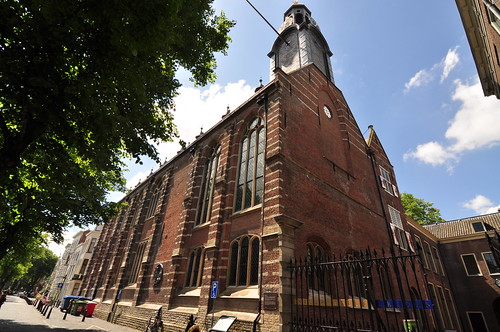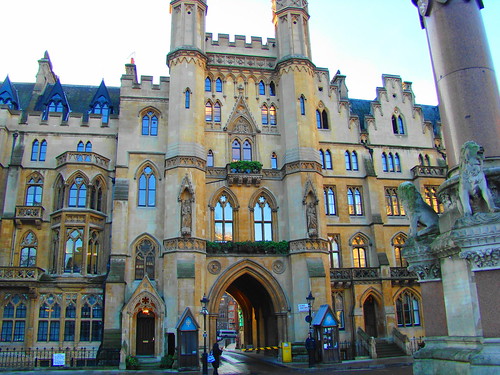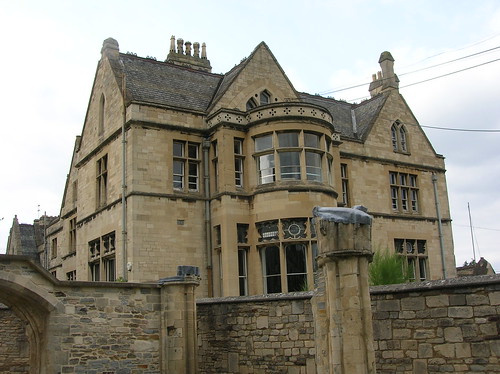The apostle Paul exhorts us in Philippians 2 to avoid grumbling and complaining when we get into difficult circumstances . . .
KJV Philippians 2:15 That ye may be blameless and harmless, the sons of God, without rebuke, in the midst of a crooked and perverse nation, among whom ye shine as lights in the world;
The NIV has a different thought here, when it likens our influence in the world to the stars of the physical universe . . .
NIV Philippians 2:15 so that you may become blameless and pure, children of God without fault in a crooked and depraved generation, in which you shine like stars in the universe.
flickr.com
The NIV translation I believe is misleading. It makes two gratuitous assumptions when translating the phrase as
like stars in the universe.
First, this rendering assumes that Paul had stars in mind when he used the word phoster (‘lightbearer) in verse 15. But, this is reading into Paul’s use of the word more than is there. If he had meant “stars,” he had a perfectly good Greek word to hand, which would indicate that: aster (as in astral, asteroid, astrology). However, phoster may refer to any luminary body which bears light, for example, the moon or the sun itself.
The second gratuitous assumption is made by translating kosmos as “the universe.” There is no suggestion from the context of the passage (Phil 2: 14 - 16) that Paul had the physical universe in mind. Only the context in which a word or phrase is used can help the translator choose the correct English meaning, where there are different ways of explaining what was in the writer’s mind. Ignore the context and you can make an author say what you want him to say, not what he actually said. Where two or more meanings are possible, a translator should not make up the reader’s mind for him as to the Holy Spirit’s intention, but should leave the same apparent ambiguity in the English rendering as that which characterised the Greek words originally written, lest he misrepresent the writer’s intended meaning.
How should phoster (light bearer) be translated?
All stars bear light, but not all light bearers are stars. Jesus describes Himself as a star in Rev 22:16. I Jesus have sent mine angel to testify unto you these things in the churches. I am the root and the offspring of David, and the bright and morning star (aster). Peter describes the risen Lord as “the day star arising in your hearts” (2 Peter 1:19) Balaam described the coming Messiah Jesus in the words “There shall come a Star out of Jacob”, Num. 24:17. On the other hand Paul the apostle never described believers as “stars,” probably because Jesus never did either. For example, Jesus commanded his disciples:
KJV Matthew 5:16 Let your light (phos) so shine before men, that they may see your good works, and glorify your Father which is in heaven.
Jesus uses
phos five times in Matthew 4-6, referring to his disciples, just as he does when referring to himself as “
the light of the world,” in John 8:12. Did he intend us to read Matthew 5:14 as “Ye are the starlight (
phos) of the world”? On that basis, perhaps we should sign up for a career in Hollywood!
In the Genesis account of creation, Gen 1:14 and 16 describe God’s act of creating the greater light (sun) and the lesser light (moon). The stars are distinguished from these ‘lights’ with the words: “and he made the stars also.” The Hebrew word for “light” here is me’or.
flickr.com
In the OT this refers to the sun and the moon, and of the sum-total of the seven lights of the golden candlestick in the Temple.
It was in the Temple context (John 8:2) that Jesus, in John 8:12, described Himself as “
the light (phos>) of the world." No room for stars here.
When the five books of Moses were translated into Greek (called the Septuagint – translated from Hebrew before the time of Jesus), the translators used Paul’s word phosteres, when translating ‘lights’ and ‘great lights’ in Gen 1:14, 16. This also harmonises with how the word is used in the OT Apocrypha. The moon is phoster in Ecclus. 43:7. The phrase “luminaries of heaven” (phosteres ouranou) in Wisdom 13:2 refers to the material world, not the ethical world, and is “exactly equivalent to phosteres en kosmou” (1) which is Paul’s expression in Phi. 2: 15 (“lights in the world”). Paul has, moreover, already indicated in verse 15 that the ethical world is in his mind, when he says in the same verse that believers shine “in the midst of a crooked and perverse nation.” Thus, the light he has in mind harks back to the Sermon on the Mount, where Jesus exhorts us to light up the darkness around us, as the sun chases away the night’s darkness.
Jesus does not compare the believer’s enlightening influence specifically to the sun, so neither would Paul expect us to understand his reference in Phi 2:15 to the sun in such a specific way. However, the believer “walking in the light” sheds a whole lot more light in this dark world than does a bunch of remote stars, which are light-years away in the vast depths of empty space.
How should kosmos be translated in Phil. 2:15?
There are seven possible ways of understanding the word cosmos in the New Testament. Its primary meaning is “order, arrangement, ornament, adornment.” It can also refer to the earth Acts 17:24, or the “earth” in contrast with Heaven, 1 John 3:17. Another usage is figurative - by metonymy, it can refer to the “human race, mankind,” e.g., Matt. 5:14; John 1:9. It is also applied specifically to the Gentile world, in contrast to the Jewish, Rom. 11:12, 15. Again, Paul may have had in mind the “present condition of human affairs,” mankind in alienation from and in opposition to God, as in 8:23 (notice Jesus had just described Himself as the “light (phos) of the world” (kosmos), in 8:12. Jesus uses kosmos quite differently in Matt. 16:26 where he is speaking of “the sum of temporal possessions,” Lastly, a seventh usage of kosmos is metaphorical, where James says the “tongue” is “a world (of iniquity).”
flickr.com
Conclusion
So, which if these seven uses of the word
kosmos does Paul have in his mind in Phi. 2:15, and how does the Holy Spirit want us to understand this verse? The NIV has made up its mind for us - an approach which makes everything depend on the translator getting it right. Rather ambitious, don’t you think? Some would even say, arrogant, as if the reader is not competent to be able to work out for himself whether a literal or metaphorical meaning is intended by the Spirit (on whom we should depend!) in verse 15.
“World” is defined in the same verse as meaning the ethical world, and it is most probable that Paul is saying the believers’ interaction with his pagan surroundings is designed to shed a needed light in a society so described in Eph 4: 18 “Having the understanding darkened, being alienated from the life of God through the ignorance that is in them, because of the blindness of their heart.”
flickr.com
Not surprising then, that RC Trench says of the KJV rendering of Phil 2:15, “. . . among whom you shine as lights in the world” that, although it “fails to mark with entire precision what St. Paul intends,” yet, “it would be difficult to improve on this.”
“If it ain’t broke, don’t fix it.’ Allow some room for the Holy Spirit to teach us what the words mean. Sometimes, less is more.
(1) RC Trench (1880/1985) Synonyms of the New Testament, MI:Eerdmans, p. 164












